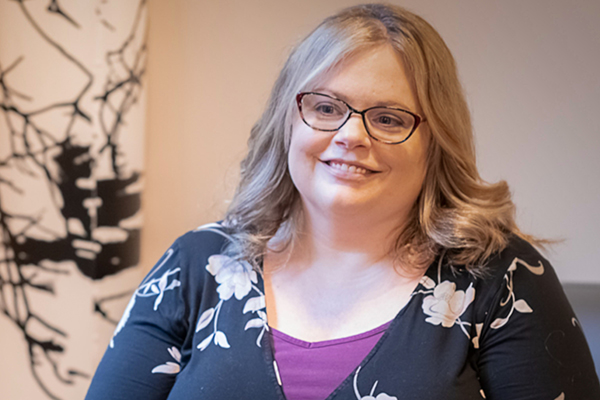
Confidentiality & Counselling
Ensuring and understanding confidentiality is a key step in establishing trust between client and counsellor. Here I’ve outlined how your privacy is protected, as well as my own legal limits to confidentiality.
Is counselling always confidential?
Yes: what you SAY in counselling STAYS in counselling. What you share with me is considered privileged information.
However – there are also limits to confidentiality in some very specific situations.
In general, I must report if:
- A child needs protection
- You are going to hurt yourself or others
- A judge subpoenas the notes
- You sign a release of information for me to share
See the When does a counsellor have to break confidentiality? section on this page for more info on my legal obligations as a therapist.
I want to go over any of your confidentiality concerns before you begin therapy. Contact me with your questions and I will clear things up.
How can I help protect my privacy during counselling?
I take privacy very seriously, and will do everything in my power to maintain confidentiality with my clients.
Here are some practical tips you can use to help ensure our client/counsellor relationship stays out of the public eye.
Be mindful of how you communicate
We will discuss this, and decide together how we will communicate. There are several factors to consider, such as:
- Is leaving a message for you okay?
- What provides the best privacy for you?
- How open are you about going to counselling?
- Is there any danger to someone finding out you are in counselling?
I prefer to use phone or text to set up appointments in order to maintain confidentiality, but this can differ from client to client.
Be aware of your phone’s tracking abilities
Take caution when using any apps on your phone that could allow people to locate your whereabouts. For example, iPhones may have the “Find My...” feature enabled. This is designed to help you find a lost device, but may have the unintended consequence of alerting other family members to your location.
If you have issues with stalking or a controlling person in your life, these apps can put your safety and wellbeing in jeopardy.
Pretend that you don’t know me
By detault, I will not engage with you if I see you outside of our sessions, as I prefer to act on the side of caution. And of course I will not be offended if you pretend you don’t know me, either.
Of course, it’s up to you to choose how you act if you see me out and about. If you choose to say hello, I will respond in kind!
Don’t engage with me online
Social media has brought about new dynamic to consider in the client/counsellor relationship. And though social media is a convenient mode of communication, it’s not recommended for use between counsellor and client.
I’ve outlined my online policies in further detail on my Social Media page.
When is a counsellor legally required to break confidentiality?
All counsellors are bound by a professional duty to report certain issues. Some issues I must report, and other issues I may choose to report. Details about these situations are outlined here.
Child abuse
It is a counsellor’s duty to report if they have reason to believe a child is in need of protection, including from self-harm if it is severe self-destructive or aggressive behaviour. This is outlined in the Child, Family and Community Service Act.
Adult self-harm
Self-harm from adults is not a required duty to report, but the counsellor is legally protected according to PIPA if they choose to report.
A counsellor who chooses to report must formally inform the person that they disclosed the information.
Abuse of a vulnerable adult
The Adult Guardianship Act provides that anyone with information indicating that a vulnerable adult has been abused or neglected (where that adult is unable to seek their own support and assistance) has the authority to breach client confidentiality.
It is not a duty to report, so this leaves some room for discretion. A counsellor is protected under both the AGA and the PIPA in breaching client confidentiality in order to make a report so long as it is not for malicious or improper purpose.
The counsellor does not have to notify the affected client that they have breached client-confidentiality.
Adult in imminent risk of serious harm
If a counsellor has reasonable grounds to believe that an adult is facing an imminent risk of serious harm or death because of a client’s meaningful threat, they are able to warn that person or police.
Before reporting, they must consider all circumstances relevant to the situation, and carefully assess the risk to the best of their ability, before breaching an adult client’s confidence.
The counsellor is not required to inform the client that they have done so.
Animal abuse
Counsellors do not have a legal duty to report the abuse of an animal. Veterinarians are the only profession that holds such a duty.
However, animal abuse is often a sign of further issues of abuse, and counsellors may choose to report the animal abuse.
A counsellor would be protected in such situations if they report to police in good faith. Animal abuse is prohibited by both BC regulatory and Canadian criminal law.
Legal requests
If a court issues a subpoena for a counsellor’s file, the counsellor is legally required to comply.
However, counsellors are encouraged to consult with a lawyer before releasing information. It is possible to request it be cancelled or modified. Disclosure should be restricted to only the information specifically requested.
If you have any questions or concerns about my duty to report (or limits to your confidentiality), please contact me.
Futher reading: Informed Consent
Review my Informed Consent page for details on how your information is protected though the Personal Information Protection Act, along with important explanations about the role of consent and counselling.
